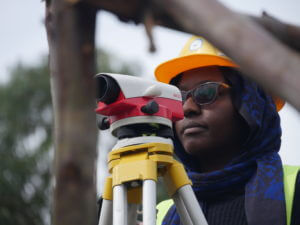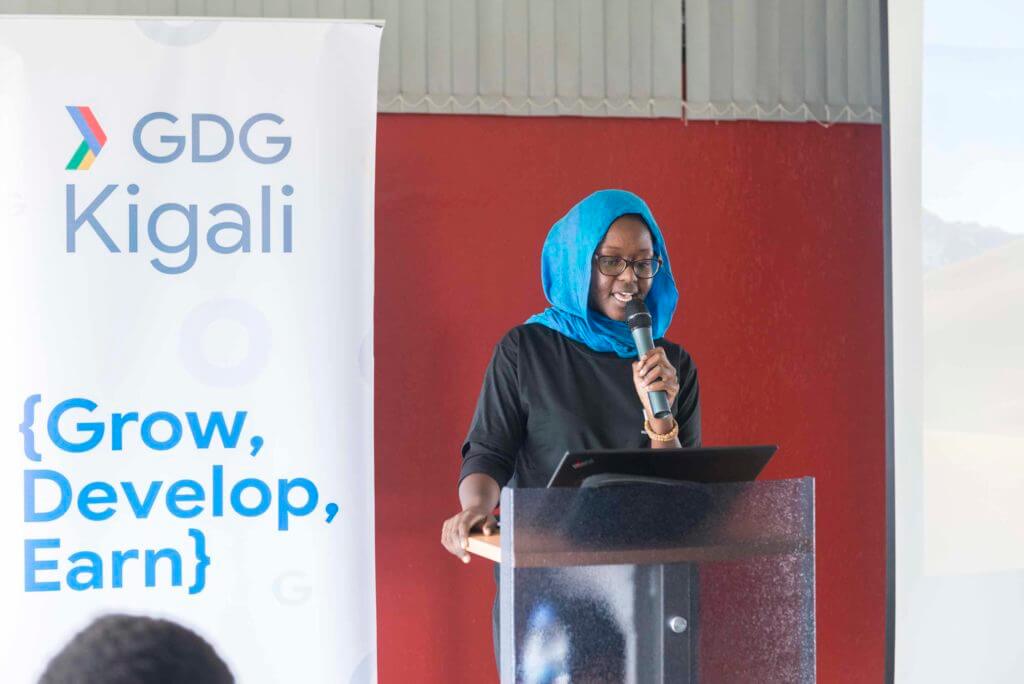Guest post by Zani Gichuki, 2019 Emerging Leader of Kenya
Editor’s note: Zani Gichuki’s guest post is part of our series, Emerging Leader Voices, which invites TechWomen Emerging Leaders to share their voice, perspective and experiences with the TechWomen community.
At the age of 14, I was walking to class with a friend when she asked me if I’d rather be the wife of a doctor or an engineer. My first reaction was surprise, quickly followed by anger that she had never asked me what I wanted to be, instead asking about a hypothetical man.
I was brought up in a household that led me to believe I could achieve anything I wanted to, and suddenly being faced with opposition to what I believed to be true was disheartening. I now know why her question made me angry, but at the time I couldn’t properly vocalize what was so wrong about it. And although she likely doesn’t remember the conversation, to me it was the beginning of my awareness of how much women are expected to cater to future men and children, rather than focusing on their present selves. It was the beginning of starting to hear that I should not enroll in a course at university that will scare off men, or that if I get a job I should not buy a car before getting married. It was the beginning of seeing that the ideal woman — a ‘good woman’ — is one who quietly supports the goals of the men around her, especially at her own expense.
 My immediate reaction was to start actively engaging my friends in conversations about their goals and dreams, separate from the expectations society already had for them. I took all the science courses in high school to allow myself to have more options, and although I was not sure what I wanted to be, I knew it had to be something impactful and interesting. It wasn’t until after my final high school exams that I decided to be a civil engineer. I was not even fully aware of what a civil engineer did, but I knew I wanted to make things. The idea of working to create something from what appeared to be nothing sounded like magic, and I joined the University of Nairobi to pursue my degree. In my five years at university, I learned how much I could do with my degree and developed an interest in unconventional construction materials and practices. It was during this time that the lack of women in the industry also started to become very apparent.
My immediate reaction was to start actively engaging my friends in conversations about their goals and dreams, separate from the expectations society already had for them. I took all the science courses in high school to allow myself to have more options, and although I was not sure what I wanted to be, I knew it had to be something impactful and interesting. It wasn’t until after my final high school exams that I decided to be a civil engineer. I was not even fully aware of what a civil engineer did, but I knew I wanted to make things. The idea of working to create something from what appeared to be nothing sounded like magic, and I joined the University of Nairobi to pursue my degree. In my five years at university, I learned how much I could do with my degree and developed an interest in unconventional construction materials and practices. It was during this time that the lack of women in the industry also started to become very apparent.
Enrollment of women in engineering courses was, and continues to be, very low. The percentage of women in professional practice is even lower. It was estimated that in 2012 about 10% of graduate engineers in Kenya are women and only about 2% are registered as professional engineers. After graduating, I began to see the link between my experience in high school and what was happening in real time, witnessing women being phased out of STEM due to lack of opportunity, societal pressure and in some cases, harassment.
I was very fortunate to have been able to find mentorship opportunities with female engineers through forums like STEM Africa, and I felt that it was important to pass on what had been given to me. I finally found a way to join this chain of mentorship when I joined Women in Engineering (WomEng) and became the first country director for Kenya. Our goals are to provide mentorship and support to female engineering students, as well as encourage girls in high school to take up careers in STEM. I have greatly enjoyed this work, and part of its success for me is seeing female engineering students go on to set up similar mentorship programs and expand the reach of our work. I have been lucky to have the amazing opportunity to inspire and collaborate with other female engineers, while practicing as a civil engineer myself. I have worked on amazing projects involving the design and construction of roads, schools and currently a hospital. It still feels like magic to translate something from an idea to something you can see and touch, and something that will be used for decades after it is built.
The TechWomen program for me is an even larger opportunity to focus on the personal and professional goals of women while building an international network of women in STEM. We need to be reminded to center ourselves in a world that often wants us to be on the sidelines. I’m really excited to be part of this year’s Emerging Leader cohort, and believe that it is important that we continue to create opportunities to learn from and with each other.
Zani is a civil engineer who graduated from the University of Nairobi with a Bsc Civil Engineering in 2014. She has since worked on large and small scale infrastructure projects ranging from roads to schools and hospitals, and is currently working on the construction supervision of a district hospital at MASS Design Group. She served as the country director for WomEng Kenya from 2014-2019 and is passionate about mentorship and gender equality in engineering.



Speak Your Mind